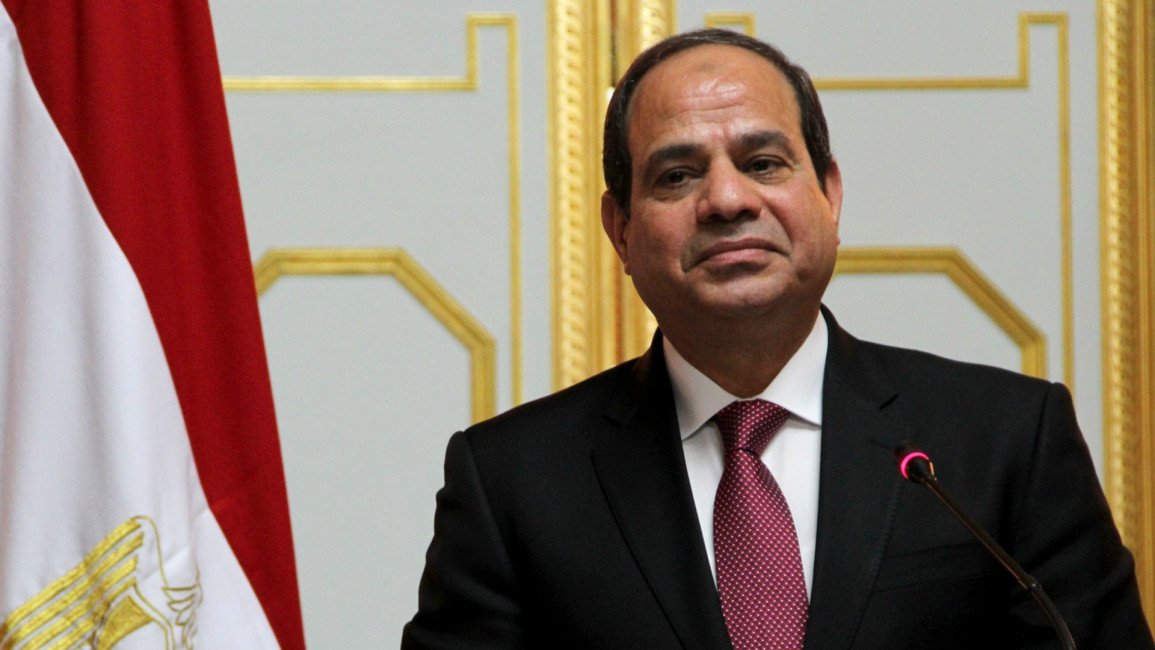Bank account of Egyptian torture victim centre suspended
An Egyptian rights group that specialises in treating victims of torture was prevented on Thursday from accessing its funds, and was told by bank officials that its account had been blocked.
Taher Abu al-Nasr, who represents the Nadeem Center for the Rehabilitation of Victims of Violence and Torture, told Reuters that an employee of the organisation was not permitted to cash a check for the centre and was informed by a bank manager that Egypt’s central bank had ordered its account suspended until it registers as a non-governmental organisation with the country’s social solidarity ministry.
Currently, say Nadeem staff, the organisation is registered as a clinic with Egypt’s health ministry and does not need to register as an NGO.
"We couldn't cash a check today. We don't know exactly what happened; whether our assets are frozen or our account is shut down or what. We will try to obtain the written order on Sunday when banks reopen," Abu al-Nasr said.
Suspending "crucial work"
Egyptian authorities refute allegations by human rights groups such as Nadeem that security forces are involved in the state-sponsored detention and torture of individuals in secret detention centres.
Rights groups including Amnesty International have condemned the actions against Nadeem, stating that the organisation provides essential services including counselling and legal assistance to torture victims.
"This is yet more evidence of the Egyptian authorities' chilling contempt of perceived critics. By freezing Nadeem's financial assets the authorities are preventing the Center from carrying out their crucial work to provide care to survivors of horrific violence," said Philip Luther, Research and Advocacy Director at Amnesty for the Middle East and North Africa, calling for the decision to be revoked.
Amnesty International has accused Egyptian authorities of attempting to put Nadeem out of business as “retaliation” for its work assisting victims of torture, and providing counselling to family members of individuals subjected to enforced disappearances.
Previously in February the Egyptian government ordered the closure of the Nadeem centre. At that time health ministry officials said that the organisation had committed unspecified violations. However no official reason was provided for the clampdown.
Clampdowns on NGOs and civil liberties
Activists in Egypt have claimed they are currently facing a widespread campaign to erase civil liberties won during the 2011 uprising in the country that lead to the end of Hosni Mubarak’s 30-year rule, presided over by President Abdel Fattah al-Sisi.
This year the UN has consistently warned of growing restrictions put on civil society in Egypt, in particular highlighting the targeting of human rights defenders and organisations.
Speaking in March, after at least 20 NGOs based in the Nile Delta Governorate were dissolved because of alleged links to the Muslim Brotherhood, UN High Commissioner for Human Rights Zeid Ra'ad Al Hussein criticized the Egyptian state, saying: “Everyone has the right to receive funds to promote human rights through peaceful means … Egyptian civil society activists should be lauded for their dedicated efforts to promote human rights under such difficult circumstances.”
But such advocacy has not curbed the Egyptian state’s actions.
Recently, in October, an Egyptian court approved a freeze on the assets of a further five prominent human rights activists and three NGOs accused of receiving foreign funds to sow chaos.
The sanctioned groups notably hold President Sisi’s government responsible for widespread civil rights abuses, some of which are related to crackdowns against protestors following the toppling of Islamist President Mohamed Mursi in 2013, during which Sisi served as military chief.
At that time security forces killed hundreds of Mursi supporters protesting in the streets, arresting thousands more. Secular activists were also later rounded up.
Speaking on the latest developments Philip Luther of Amnesty said on Thursday that “obstructing care for victims of torture is inexcusable. Instead of lashing out at El Nadeem Center, the Egyptian authorities should be implementing safeguards to prevent torture in custody and end enforced disappearances.”



